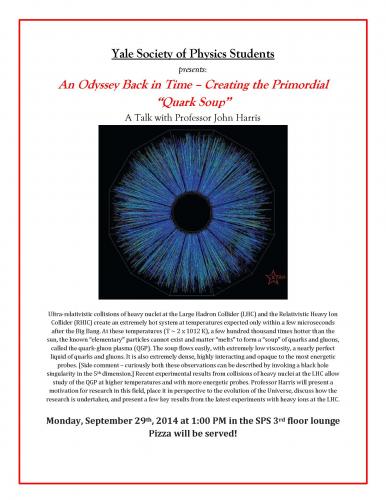
Ultra-relativistic collisions of heavy nuclei at the Large Hadron Collider (LHC) and the Relativistic Heavy Ion Collider (RHIC) create an extremely hot system at temperatures expected only within a few microseconds after the Big Bang. At these temperatures (T ~ 2 x 1012 K), a few hundred thousand times hotter than the sun, the known “elementary” particles cannot exist and matter “melts” to form a “soup” of quarks and gluons, called the quark-gluon plasma (QGP). The soup flows easily, with extremely low viscosity, a nearly perfect liquid of quarks and gluons. It is also extremely dense, highly interacting and opaque to the most energetic probes. [Side comment – curiously both these observations can be described by invoking a black hole singularity in the 5th dimension.] Recent experimental results from collisions of heavy nuclei at the LHC allow study of the QGP at higher temperatures and with more energetic probes. Professor Harris will present a motivation for research in this field, place it in perspective to the evolution of the Universe, discuss how the research is undertaken, and present a few key results from the latest experiments with heavy ions at the LHC.